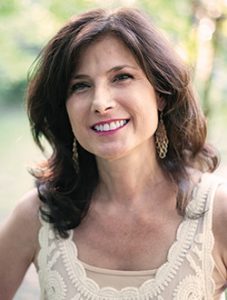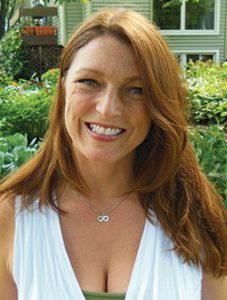Voices: What Have You Learned About Asking for Help?
Everyone needs to ask for help occasionally, but when you have a chronic condition, asking for and accepting help can be especially fraught. Here’s what three bloggers have learned.
Kelly O’Neill Young
http://rawarrior.com
"Asking Is Giving"
Until rheumatoid arthritis (RA) hit me hard in 2006, I was always the one giving help – not asking for it. It was one of the most distressing changes brought by disability.
At times, I dreaded asking for help so much that I would decide to go without – which is fine if it’s a cup of tea, but not if it’s a medicine bottle you really need opened. Then I started thinking: If I enjoy giving help, then others do, too. My asking for help gives them a chance to have that blessing of making a difference for someone.
I also learned that people are often surprised when I ask. They may not realize things are so hard for me. Maybe they want to help, but don’t know how.
Because I’m tall, every so often I get to help a friend – or a stranger – reach something they need. Yes, it still brings the same joy as always.
http://itsjustabadday.com
“I Had to Release the Stigma”
I’ve always been independent with an amazingly supportive family. After college, I had a job that required traveling and I lived for a year in New York City. But, in 2012, my psoriatic arthritis became much worse. I couldn’t walk, I couldn’t drive, so I had to move back in with my family.
At first, it drove me insane; in my late 20s, I thought I shouldn’t need my parents and should be further along in life. But I had to rely on them for everything. As much as I hated it, I knew it was exactly where I needed to be.
I had to release the stigma of needing help to be able to move forward. I learned that by accepting my situation and sometimes having to ask for help has resulted in profound effects on my healing journey!
Shawna Lee Coronado
http://shawnacoronado.com
“It Was an Emotional Trauma”
One of the most difficult problems for me related to my spinal osteoarthritis (OA) is asking for help. As a gardening writer and expert, I used to toss 50-pound bags of soil over my shoulder with ease, and suddenly my OA forced me to find other solutions. Asking for help was an emotional trauma; I like to think I don’t need assistance.
I have started a new, healthier practice in the spring, my busiest garden season: I post on social media asking for assistance with garden projects. I pay some helpers and barter or trade services with others.
I have also found tools that make gardening easier, like my weed flamer, which allows me to burn small weeds in my paths and driveway. This prevents me from having to bend down and truly makes a difference for my pain levels.
Get the right tools and ask for help whenever you can, and it will ease your pain.
Related Resources:
Kelly O’Neill Young
http://rawarrior.com
"Asking Is Giving"
Until rheumatoid arthritis (RA) hit me hard in 2006, I was always the one giving help – not asking for it. It was one of the most distressing changes brought by disability.
At times, I dreaded asking for help so much that I would decide to go without – which is fine if it’s a cup of tea, but not if it’s a medicine bottle you really need opened. Then I started thinking: If I enjoy giving help, then others do, too. My asking for help gives them a chance to have that blessing of making a difference for someone.
I also learned that people are often surprised when I ask. They may not realize things are so hard for me. Maybe they want to help, but don’t know how.
Because I’m tall, every so often I get to help a friend – or a stranger – reach something they need. Yes, it still brings the same joy as always.
 Julie Cerrone
Julie Cerrone
http://itsjustabadday.com
“I Had to Release the Stigma”
I’ve always been independent with an amazingly supportive family. After college, I had a job that required traveling and I lived for a year in New York City. But, in 2012, my psoriatic arthritis became much worse. I couldn’t walk, I couldn’t drive, so I had to move back in with my family.
At first, it drove me insane; in my late 20s, I thought I shouldn’t need my parents and should be further along in life. But I had to rely on them for everything. As much as I hated it, I knew it was exactly where I needed to be.
I had to release the stigma of needing help to be able to move forward. I learned that by accepting my situation and sometimes having to ask for help has resulted in profound effects on my healing journey!
Shawna Lee Coronado
http://shawnacoronado.com
“It Was an Emotional Trauma”
One of the most difficult problems for me related to my spinal osteoarthritis (OA) is asking for help. As a gardening writer and expert, I used to toss 50-pound bags of soil over my shoulder with ease, and suddenly my OA forced me to find other solutions. Asking for help was an emotional trauma; I like to think I don’t need assistance.
I have started a new, healthier practice in the spring, my busiest garden season: I post on social media asking for assistance with garden projects. I pay some helpers and barter or trade services with others.
I have also found tools that make gardening easier, like my weed flamer, which allows me to burn small weeds in my paths and driveway. This prevents me from having to bend down and truly makes a difference for my pain levels.
Get the right tools and ask for help whenever you can, and it will ease your pain.
Related Resources:
